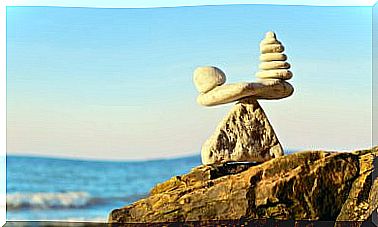The Downsides Of Being Too Modest

Being too modest is just as harmful as anything that is taken to the extreme. The key is in that “too much.” By that word, the great virtues can turn into defects and the great pleasures can turn into torture. Excess almost always leads to distort the nature of things.
Modesty is a great virtue, which is related to important human values such as simplicity, humility and temperance. It is the opposite of vanity and conceit, those two traits that have gained so much ground in today’s world. Those who are modest do not need, nor want, to brag about something. But someone who is too modest goes to the point of minimizing his achievements and qualities.
Although excessive haughtiness generates antipathy and raises a barrier with others, excessive modesty does not lead to healthy relationships , either with others, or with oneself. Those who detract from what they are and what they do can obtain certain benefits, but instead lose the possibility of reaffirming themselves and obtaining the recognition they deserve.
Being too modest: a face of inhibition
It is true that being too modest facilitates some aspects of social relationships. Whoever behaves in this way is perceived as harmless and this avoids jealousy, envy and confrontations. In today’s world there are many individuals who are excessively competitive. In fact, social media has made us even more competitive. Someone who is very modest manages to avoid these tensions.
Who feels sure of himself does not need neither to show off, nor to boast, nor to obtain the recognition of the others. That is why you can be modest in a natural and spontaneous way. Now, with those who seek to be too modest, something different happens. His thing is no longer simply not to conceal himself, but he also seeks to hide , reduce himself, and even make himself invisible.
It could be said then that excessive modesty is not a sign of humility, but of inhibition . You fear the reactions of others and one way to deal with it is to mimic yourself, preventing yourself from being seen. It is as if one does not have the right to be equivalent or better than the others in some aspect. In one way or another, it represents a feeling of shame in front of oneself.

Pride is not pride
Pride is often confused with pride, but in reality they are two very different realities. Pride speaks of an exalted self-love. Pride is more related to wounded self-esteem. Self-love is the result of self-acceptance and self-worth. In turn, pride is born when, based on that reality, we reach an achievement that further increases that feeling of being comfortable with who we are.
Pride, on the other hand, is basically a sham. Seek the recognition and exaltation that comes from others. Establish a distance that allows you to feel superior and, thanks to this, improve your opinion of yourself. Pride shows achievement, instead of sharing. There is some bitterness in its essence and it is not filled with anything.
That arrogance is, therefore, an attempt to compensate for the lack of self-love. It is usually contrived and aggressive. If others do not recognize the value of the proud, he is deeply frustrated. He is unable to rate himself well, regardless of what others think.

Pride is missing
Modesty and pride are not far from each other. These realities are not mutually exclusive, but rather complement each other. A person can be proud of what he is, of his achievements, and still remain in a position of modesty as well. It means not bragging, or trying to gain the admiration or recognition of others, but also not minimizing or making yourself invisible.
By being too modest, or arrogant, a disproportionate importance is attached to the gaze of others. In the first case, because he is feared and because a feeling of shame and inability to face his gaze prevails. In the second case, because there is an interest in prevailing over others. Pride needs to be compared, to win, and to make it highly visible to others.
Being proud of what we are and what we achieve is positive and healthy. Everything that costs us work and we achieve, deserves recognition from ourselves. It is also good to share it with others, as we could share a sadness or a defeat. The opinion of others has taken on an unusual importance. The most advisable thing is not to be invaded by this and to turn our own criteria into the standard with which we measure ourselves.









